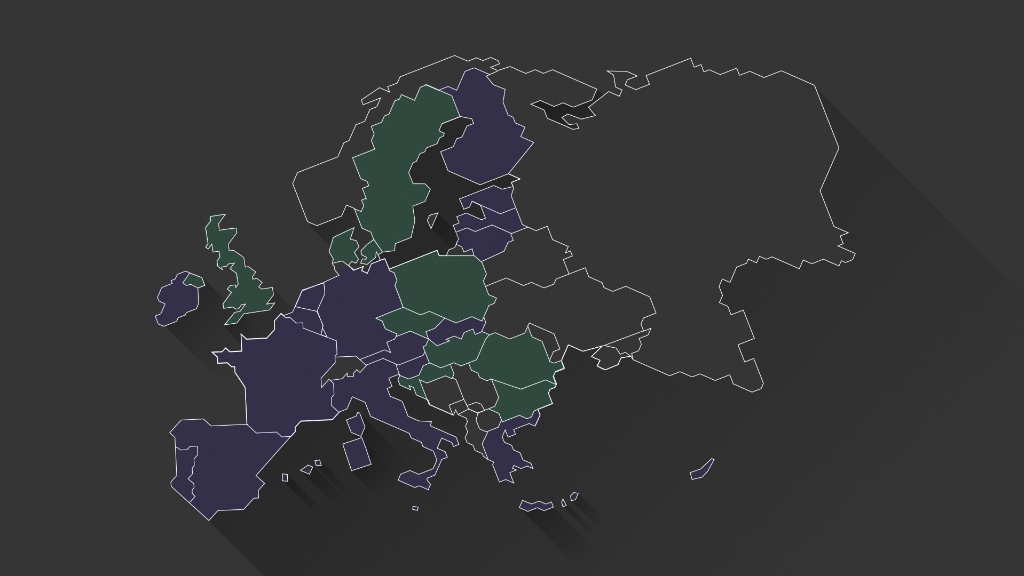[ad_1]

How’s this for déjà vu? Yet another credit card debt crisis is brewing in Europe.
Greece desires European lenders to launch hard cash from a bailout agreed in 2015 so it can make debt repayments, but officers are at loggerheads. Traders are commencing to worry, demanding higher returns on Greek financial debt.
Introducing to the confusion is a warning from the International Financial Fund that Greece’s financial debt is unsustainable and on an “explosive” route, an assessment that prevents the fund from participating in a rescue.
The timing could barely be even worse. European leaders have a whole lot on their plate. Elections are looming in the Netherlands, France and Germany. Brexit negotiations will start out inside months.
However the danger of Greece tumbling out of the euro needs attention. This is why the upcoming several weeks will be important:
Hammer to fall
Greece is jogging out of hard cash, but it requirements to make repayments to lenders which includes the European Central Bank. Major expenditures are coming owing in July.
If Greece can not make the payments, it will default on its personal debt and spiral out of the eurozone.
Meanwhile, its newest bailout — the third because 2010 — is effectively frozen. The negotiating positions of main players are even more aside than at any level given that the bailout was agreed in June, 2015.
There is even disagreement around the measurement of the issue facing Greece.
“The IMF’s newest review of Greece’s debt place was astonishingly pessimistic,” said Jeroen Dijsselbloem, the Dutch finance minister who chairs conferences of best eurozone finance officers. “It really is astonishing for the reason that Greece is presently doing superior than that report describes.”
I want it all
The IMF, Greece and creditors led by Germany all have quite distinctive priorities. Here is what every single would like:
The IMF has called on Greece to make far more formidable adjustments to its overall economy, including labor current market reforms. The IMF didn’t be a part of the third bailout when first agreed in 2015 due to the fact it did not see Greece’s financial debt as staying sustainable. It continue to maintains that Greece simply cannot be self sustaining devoid of significant financial debt aid.
Greece’s major creditors concur that Athens need to put into practice the reforms proposed by the IMF. However, they have categorically ruled out any credit card debt aid, a placement reiterated by eurozone finance officers on Tuesday.
Greek Key Minister Alexis Tsipras, in the meantime, demonstrates no signal of yielding to needs for additional reforms. He insists that financial debt relief is needed right before any new concessions are designed.
It is a traditional standoff and investors are watching to see which bash blinks initial.
Put out the fire
The up coming significant milestone is a meeting of eurozone finance ministers on Feb. 20 — the previous ahead of elections start off muddying Europe’s political waters. Agreeing but much more economic help for Greece will grow to be even more challenging as soon as voters start off casting their ballots.
Just after that, payments will start coming because of. Greece faces a payment to the ECB of roughly €1.4 billion in late April and yet another €4.1 billion in July.
The stake are higher.
The unemployment amount in Greece is expected to operate above 21% in 2017. Investment is down by much more than 60% and output has contracted by extra than 25% given that the economic crisis. The country’s social cloth is fraying.
If European lenders refuse additional aid, Greece’s financial debt will spiral out of control no issue how quickly its overall economy grows, according to the IMF.
That will go away only just one selection — abandoning the euro.
Ted Malloch, President Trump’s envisioned decision for U.S. ambassador to the EU, instructed Greek television on Tuesday that the eurozone’s future would be made a decision in the subsequent 18 months.
“Undoubtedly there will be a Europe, regardless of whether the eurozone survives, I imagine it is really quite considerably a issue that is on the agenda,” he mentioned. “I imagine this time I would have to say that the odds are larger that Greece alone will break out of the euro.”
CNNMoney (London) Very first printed February 8, 2017: 12:27 PM ET
[ad_2]
Source hyperlink

